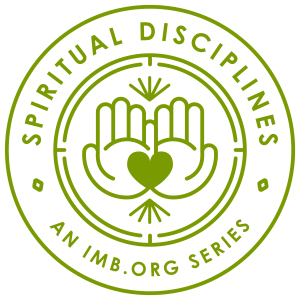
 If you grew up in a church like mine, the importance of Bible study was probably engrained in you from a very young age. I can remember singing, “Read your Bible, pray every day, and you’ll grow, grow, grow” back in my Mission Friends days.
If you grew up in a church like mine, the importance of Bible study was probably engrained in you from a very young age. I can remember singing, “Read your Bible, pray every day, and you’ll grow, grow, grow” back in my Mission Friends days.
But why is this discipline so central to this Christian life? The answer is all too simple. We study the Bible to know God and to love him with all of our being.
The Bible is God’s Word to his people, breathed out by him (2 Tim. 3:16), written for our instruction (Rom. 15:4), and profitable for the Christian life (2 Tim. 3:16). It is perfect in all its proclamations, and it leads us to Christ. God, as an act of his grace, gifted us not just a record of his revelation in history, but an actual revelation of himself word by word, page by page. As we read, the Holy Spirit reveals himself to us.
“If you want to know and love God, you must know and love him as he has spoken to us in the Scriptures.”
Because the Bible is God’s Word to his people, Bible study is vital in the life of all Christians, missionaries included. If you want to know and love God, you must know and love him as he has spoken to us in the Scriptures.
Discipling Believers of Another Culture to Study the Bible
There are more Bible study methods than I could name, and many of them are incredibly helpful in cross-cultural ministry. Instead of creating or simply repeating one of those existent methods, I’d like to offer a few core values of Bible study that aren’t a method per se but will prove valuable for cross-cultural ministry.
Missionaries must disciple believers to depend on the Bible.
Missionaries must disciple believers in different cultures to understand that reading the Scriptures is as essential to life as breathing, eating, or sleeping. Jesus wasn’t making a cute analogy when he echoed the Pentateuch, saying, “Man shall not live by bread alone, but by every word that comes from the mouth of God” (Matt. 4:4 ESV). He was making a statement about our total dependence on the Scriptures. It is our sustenance in life.
For most new believers—regardless of cultural context—to grow into reading Scripture as their lifeblood, they have to see someone else live out that type of desperation and commitment. Missionaries need to pull back the curtain on their own relationship with God and their need for God’s Word in their day-to-day life. When their discipler embodies dependence on the Bible, new believers see what living in full reliance on the Scriptures could look like in their own life. In this way, missionaries say, like Paul, “Be imitators of me as I am of Christ” (1 Cor. 11:1 ESV).
Missionaries must disciple believers to read the Bible with humility.
Because the Bible is the Word of God, we must read it with care and humbly yield ourselves to it as the supreme authority. We do not come to it to evaluate it. Rather, we pledge ourselves to God and willingly submit to what he has spoken.
“Because the Bible is the Word of God, we must read it with care and humbly yield ourselves to it as the supreme authority.”
The missionary must model this type of submission in a couple of different ways. First, it is permissible—even valuable—to admit there are parts of the text that confuse or bother them. When missionaries admit they do not have all the answers, they model humility. They show that we submit ourselves to the Bible not on the basis of our own understanding but on the basis of God’s inspiration. While complete submission to the Bible does not preclude reason and intellect, we recognize that as we interpret Scripture, we do so with a finite and fallen mind. So, we proceed with caution and interpret with humility.
Second, the missionary must noticeably subordinate herself to the Bible. In discipleship contexts, there is a constant temptation for the discipler to usurp the Bible’s authority. As new believers come to missionaries with questions, missionaries must resist the urge to answer out of their own authority. Missionaries must guard against this temptation by consistently returning to God’s Word as the primary source for knowing God.
Missionaries must disciple believers to see themselves in the Bible’s story.
Missionaries must disciple believers to view their own stories in the context of the story of Scripture. The Bible is one grand narrative from beginning to end. It tells the story that encapsulates all other stories, including those of our lives.
New believers must learn to see their own stories in the light of Scripture. This means that they understand the contours of the grand narrative (Creation, Fall, Redemption, and Restoration) of the Scriptures and have a chronological sense of where they live. Christians must be able to look back on God’s faithfulness in creating the world and redeeming humanity from sin, and to look forward to Christ’s return when he will make all things new. Being oriented in the true story of the history of the world helps give us the bearings in our own lives. It gives us hope and helps us understand the part we play in the Great Commission as we work to see all nations worshiping God in the new heavens and the new earth.
In the end, missionaries must themselves be committed to knowing God through his written Word and lead believers in other contexts to know and love God by reading and living out the story of the Bible.
Christy Thornton is currently pursuing a PhD in systematic theology from Southeastern Baptist Theological Seminary. She is passionate about leading others to know and love God and participate in his mission in the world. She has had the privilege to serve internationally among unreached peoples and to serve stateside in local churches in a number of capacities. She is currently a member of The Summit Church in Raleigh, North Carolina.

